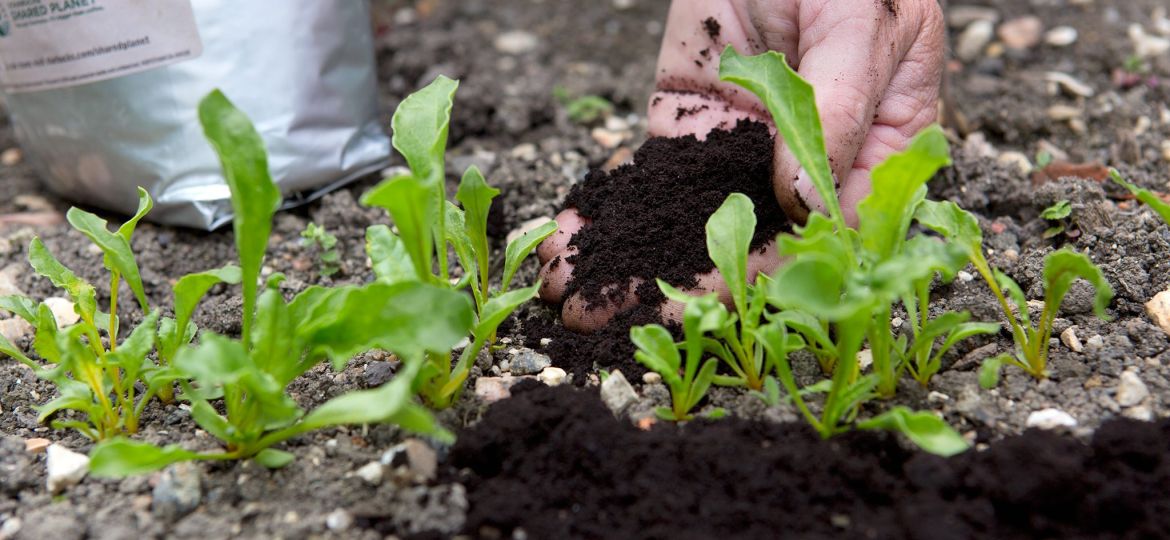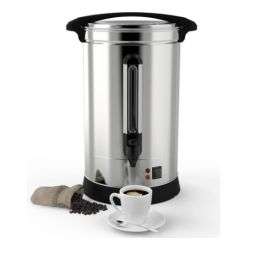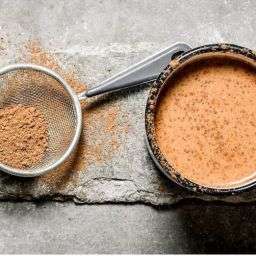
Coffee grounds are a treasure trove for gardeners, turning a simple morning routine into an eco-friendly garden boost. Not just waste, these leftovers from your brew are packed with potential: improving soil quality, deterring pests, and aiding in water retention.
When mixed into compost, they introduce beneficial nutrients; as a direct soil amendment, they enrich the earth; and in pest control, they offer a natural deterrent. This sustainable resource not only recycles what would otherwise head to the landfill but also provides a multitude of benefits for your garden, making it an essential component of green gardening practices.
Key Takeaways
- Improves Soil Moisture Retention: Coffee grounds help the soil retain moisture, making it more hospitable for plants that thrive in well-hydrated environments.
- Suppresses Harmful Fungi and Bacteria: The antibacterial and antifungal properties of coffee grounds can protect your plants from diseases, promoting a healthier garden.
- Natural Slug Killer: A solution made from coffee grounds and water can deter slugs, providing a natural method to protect your plants from these pests.
- Promotes Healthy Worm Population: Earthworms are attracted to coffee grounds, and their increased activity helps to aerate and enrich the soil.
- Acts as Mulch and Inhibits Weed Growth: When used as mulch, coffee grounds help to maintain soil temperature and moisture, while also deterring weeds.
- Serves as a Slow-Release Fertilizer: The nitrogen in coffee grounds releases slowly into the soil, providing steady nutrition to plants.
- Environmentally-Friendly by Reducing Waste: Using coffee grounds in your garden recycles a waste product, reducing landfill use and promoting a healthier environment.
Composting with Coffee Grounds
Composting is a fantastic way to recycle kitchen scraps and yard waste into gold for your garden, and coffee grounds are a prime ingredient for this magic. Coffee grounds are considered “green” compost material, rich in nitrogen, which is essential for composting. They help create the perfect balance in your compost pile when mixed with “brown” materials, such as dried leaves or shredded paper, which add carbon.
The key to successful composting is maintaining a healthy balance between these green and brown materials. A general guideline is to aim for a ratio of about 3 parts brown to 1 part green material. Coffee grounds can make up a significant part of the green component, but it’s crucial not to overdo it. Keeping coffee grounds to about 20-25% of your total compost pile is a good rule of thumb.
In addition to balancing your compost pile, coffee grounds attract beneficial worms. These little workers speed up the composting process by breaking down materials faster. However, it’s important to bury the grounds within the pile to avoid attracting pests like fruit flies.
Direct Application to Soil
Applying coffee grounds directly to your garden soil can be incredibly beneficial, acting as a mulch, a natural pest deterrent, and a slow-release fertilizer. When used as mulch, a thin layer of grounds spread around plants can help retain moisture in the soil, regulate soil temperature, and suppress weed growth. However, to prevent the grounds from compacting and restricting water flow, they should not be applied too thickly. A mix with other organic materials, such as leaf litter, can help maintain good soil structure.
Coffee grounds can also deter garden pests such as slugs and snails, which are repelled by the caffeine. Sprinkling grounds around plants vulnerable to these pests offers a simple, natural method of protection.
As a slow-release fertilizer, coffee grounds gradually enrich the soil with nitrogen, phosphorus, and potassium, along with minor nutrients plants need for growth. This gentle feeding supports plant health over time without the risk of nutrient burn associated with stronger fertilizers. Just remember, when applying directly to the soil, to keep the layer of coffee grounds to less than half an inch thick and cover with a more substantial layer of organic mulch to prevent them from forming a hard crust.
Creating Liquid Fertilizer
Coffee ground tea is an excellent way to give your plants a gentle nutrient boost. To make it, simply add 2 cups of used coffee grounds to a 5-gallon bucket filled with water. Let the mixture steep overnight. This “tea” will gather soluble nutrients from the coffee grounds, creating a liquid fertilizer that can be used to water your plants. It’s particularly beneficial for plants needing a nitrogen boost. Remember, this should be used as a supplement to regular watering, not a replacement.
Dos and Don’ts When Using Coffee Grounds
Dos:
- Compost First: If possible, compost coffee grounds before using them in your garden. This process helps to neutralize some of the acidity and makes the nutrients more readily available to your plants.
- Mix with Other Organic Matter: When applying directly to the soil or using as mulch, mix coffee grounds with other organic material to avoid compaction and ensure good soil structure.
- Use Sparingly: A little goes a long way. Use coffee grounds in moderation to avoid nitrogen overload or soil compaction.
- Test Soil pH Regularly: Keep an eye on your garden’s soil pH, especially if you’re using coffee grounds frequently. They can affect soil acidity over time.
Don’ts:
- Don’t Overapply: Excessive use of coffee grounds can lead to nitrogen burn, affecting plant health. Stick to a thin layer if applying directly to the soil.
- Avoid Using Fresh Grounds Directly on Plants: Fresh coffee grounds are acidic and may inhibit plant growth if applied directly. Always compost them first or use them as part of a mixed organic mulch.
- Don’t Assume All Plants Love Coffee Grounds: While many plants benefit from the nutrients found in coffee grounds, some, particularly those that prefer less acidic soil, may not thrive. Know your plants’ needs before applying.
- Avoid Using Moldy Grounds: Moldy coffee grounds can introduce unwanted pathogens to your soil. Always use fresh, dry grounds to avoid this risk.
Understanding pH Levels and Soil Type
Coffee grounds can affect soil pH, which in turn influences plant growth. Unwashed coffee grounds are acidic, making them suitable for acid-loving plants like azaleas and blueberries. However, once washed, coffee grounds have a near-neutral pH level around 6.5, making them harmless to most other plants. Regular testing of your garden’s soil pH is wise if you’re frequently adding coffee grounds, ensuring you maintain a balanced environment for all your plants.
FAQs
- Can I use coffee grounds on all types of plants?
Not all plants thrive with coffee grounds. Acid-loving plants benefit the most, while plants preferring neutral to alkaline soil may not respond as well. Always consider your plant’s pH preferences. - How do I prevent pests when using coffee grounds?
Sprinkle coffee grounds around your plants to deter slugs, snails, and other pests. The caffeine and texture of the grounds are natural repellents. - Are there plants that should not receive coffee grounds?
Yes, plants that prefer less acidic soil, such as lavender and succulents, might not fare well with coffee grounds. Use grounds sparingly or not at all with these species.
Final Thoughts
Using coffee grounds in your garden offers numerous benefits, from improving soil health to deterring pests and reducing waste. However, it’s crucial to use them wisely, considering the needs of your specific plants and the overall balance of your garden’s ecosystem. Experiment with coffee grounds and observe how your garden responds, adjusting your approach as needed to support vibrant plant growth and a healthy, sustainable garden environment.








